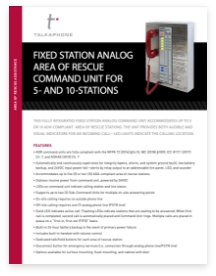There are so many factors that go into a student’s college selection process: cost, curriculum, location, reputation, and class size to name a few. Campus safety and security are also top concerns, and one that can impact school choice or even the decision whether or not to attend a university at all.
In the College Planning and Student Emotions report by RNL, 62% of over 10,000 12th graders surveyed felt worried about their own safety on campus when it came to college life. This statistic brings into sharp focus the need for administration to make safety a top priority. It also shows the importance of designing a campus that sends visual cues that security concerns are addressed and investments in safety are taken seriously.
One of the steps in the college selection process is often a visit. When parents and students first set foot on campus, efforts should immediately begin to make these visitors feel confident in this new environment. Showing that the college prioritizes a secure campus and values open communication about potential risks and protective measures builds trust from the onset.
A few ways to improve campus safety include:
Create well-lit walking areas: Ensure adequate lighting in parking lots, pathways, and entrances minimizes unsafe, dark areas and enhances visibility at night.
Access Control Systems: Limiting building access through key cards, biometric systems, or restricted access hours can protect students in residence halls and other sensitive campus areas.
Safety Escort Services: Offering campus escort services for students walking alone at night provides an additional level of safety and reassurance.
Security Cameras: Installing surveillance cameras around campus helps monitor activity, deter crime, and provide evidence if incidents occur.
Emergency Alert Systems: Implementing campus-wide alert systems (texts, emails, sirens, and loudspeakers) keeps everyone informed of potential dangers in real-time, from natural disasters to security threats.
Blue Light Emergency Stations: Installing blue light emergency phones across campus gives students a quick way to call for help if they feel unsafe or encounter emergencies.
Crime Prevention Programs: Hosting workshops and events on topics like bystander intervention, cyber safety, and theft prevention raises awareness and fosters a proactive campus community.
Special consideration to visible crime deterrents and technologies should be given to areas of campus that are remote and dark in the evening. A Clery Act report survey found that 70% of students feel safe on campus during the day, but this number drops for students at night, particularly in poorly lit areas or isolated parts of campus. Blue light emergency stations and bright lighting are ideal for these situations.
A survey by Inside Higher Ed revealed that students who feel unsafe are more likely to consider leaving, underscoring the importance of clear communication on safety measures, trust-building activities with campus security, and infrastructural improvements like lighting and secure housing.
Fostering an informed, resilient, and well-equipped campus community, where students feel prepared and safe from day one is a responsible choice that also pays in student acquisition and retention.
Learn more about Talkaphone’s proven Blue Light Emergency, Mass Notification, and Access Control Hardware solutions.













